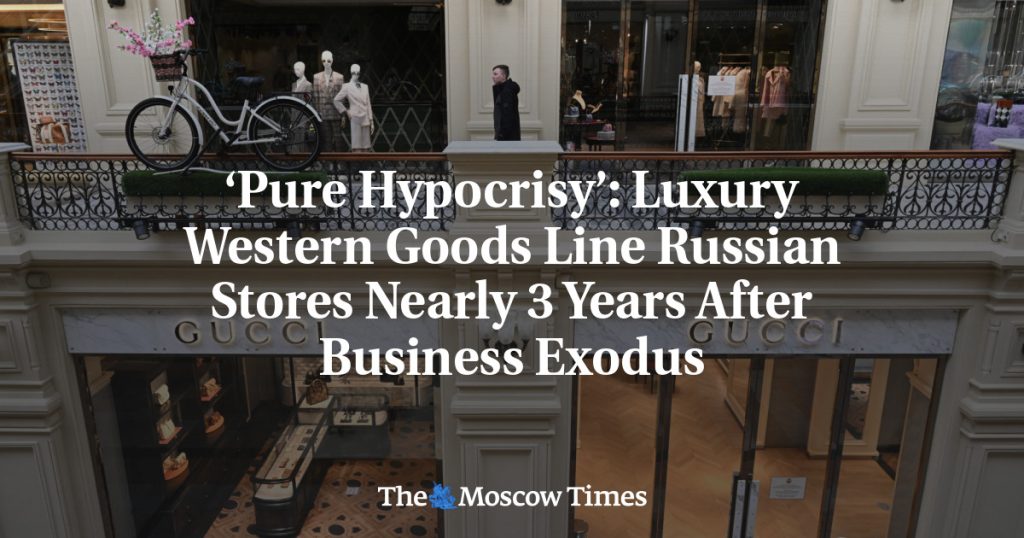Despite Western sanctions and the departure of global brands following Russia’s invasion of Ukraine, Moscow’s elite shoppers continue to have access to luxury Western goods. The high-end shopping districts in the Russian capital are still bustling with sales of Western sports cars, designer clothing, and gold jewelry, challenging expectations of economic isolation. While a few brands like Chanel, Dior, and Hermes have left, many others, including Italian fashion house Brunello Cucinelli, are still present in the market according to shoppers like Natalia and Sergei.
The US, EU, and UK imposed sanctions on Russia, banning the export of luxury goods as a response to the invasion of Ukraine. Several luxury brands voluntarily left the Russian market, including Chanel, Hermes, LVMH, and Kering. However, many of their products are still available in Moscow stores despite their announced departure. Some brands have kept their leased spaces, suggesting potential plans to return. Sanctioned goods continue to enter Russia through middlemen in countries like Kyrgyzstan, Kazakhstan, and Azerbaijan, indicating a spike in trade since the imposition of sanctions.
Luxury goods from brands like Prada, Yves Saint Laurent, and Alexander McQueen can still be found at Moscow’s TSUM department store. The store boasts competitive prices compared to Dubai, a city that has become popular among wealthy Russians due to travel difficulties to Europe. Wealthy Russians are also turning to buyers who purchase luxury items in European cities and ship them to Russia. Stylists like Andrei work with buyers to fulfill orders for various luxury items, hinting at the sustained demand for Western goods in Russia.
Despite the challenges, there is a belief among some that foreign brands may return to the Russian market once they can. Andrei, a stylist catering to high-end clients, believes it is only a matter of time before foreign brands come rushing back to cater to the demand for luxury Western goods in Russia. Some believe that the sustained demand, as evidenced by the continued availability of luxury goods in Moscow, will eventually lead to the return of these brands to the market. The luxury market in Russia seems to be resilient despite the international sanctions and geopolitical tensions.
The sustained demand for luxury Western goods in Russia has led to the development of new practices like working with buyers who facilitate the purchase and shipment of luxury items from European cities. Moscow’s elite shoppers are finding ways to acquire the products they desire despite the challenges imposed by sanctions and global brands leaving the market. The presence of products from brands like Prada, Yves Saint Laurent, and Alexander McQueen in Moscow’s stores is indicative of the resilience and adaptability of the luxury market in Russia.
In conclusion, despite the challenges posed by Western sanctions and the exodus of global luxury brands following the invasion of Ukraine, Moscow’s elite shoppers continue to have access to a wide range of luxury Western goods. The sustained demand for these products has led to the development of new practices like working with buyers and the continued availability of luxury items in Moscow’s elite shopping districts. While some brands have left the market, there is a belief that they may eventually return to cater to the demand for luxury goods in Russia. The luxury market in Moscow remains vibrant and resilient, challenging initial expectations of economic isolation.


